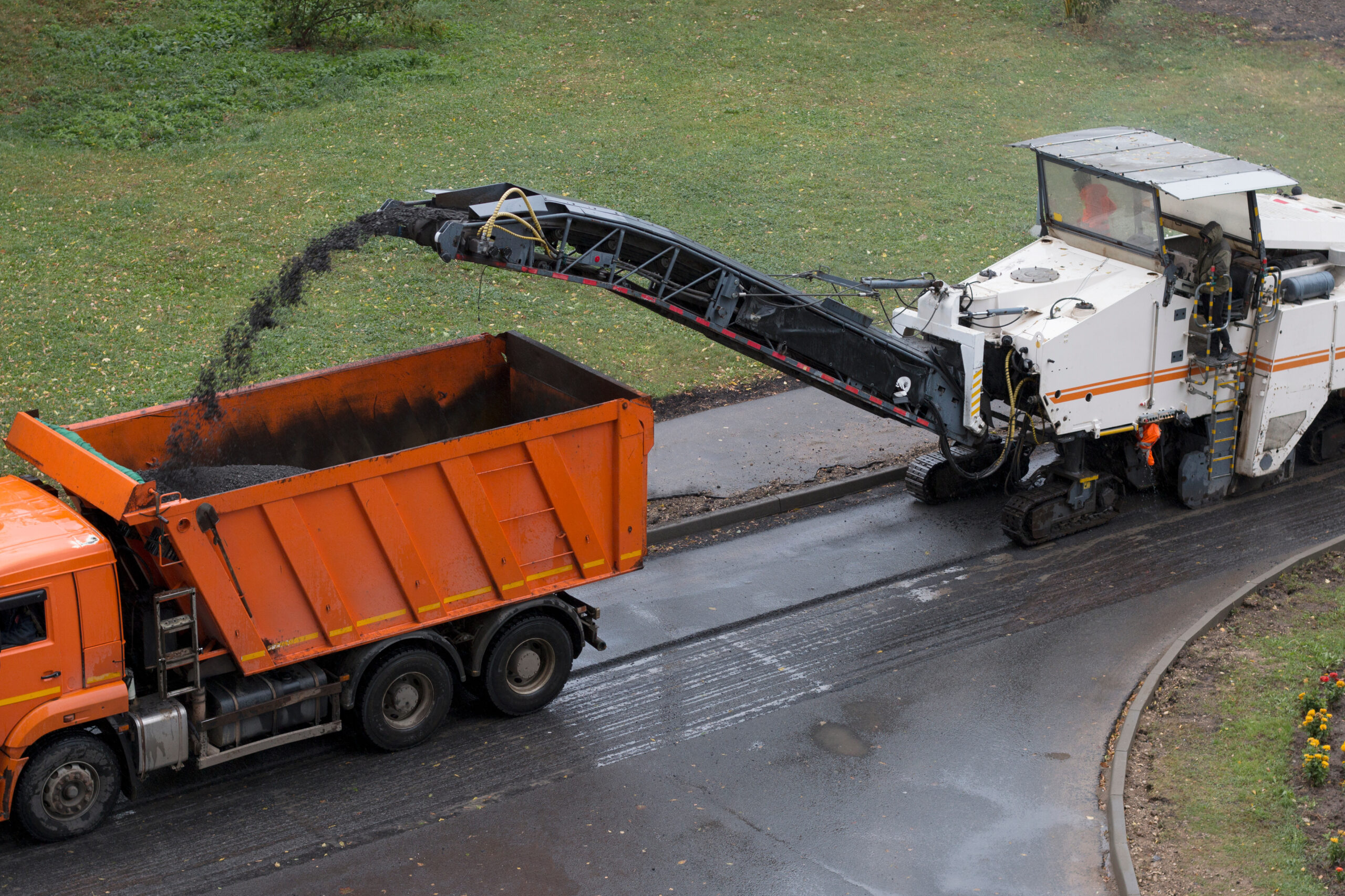When constructing or renovating a driveway, choosing a suitable material is essential. Obviously, you’ll be driving, parking, and walking over this stretch for a long time to come. Asphalt millings and gravel are two popular options that offer distinct advantages. Understanding the differences can help you make an informed decision that suits your needs and budget. In this blog post, we will compare asphalt millings and gravel, highlighting their characteristics, benefits, and considerations to help you determine the best choice for your driveway.
So, What Are Asphalt Millings?
Asphalt millings are recycled asphalt pavement that has been crushed into small pieces. They are a cost-effective and environmentally friendly alternative to traditional asphalt materials. Millings are typically obtained from milling machines that remove old asphalt surfaces during road construction or resurfacing projects. Instead of disposing of the removed asphalt, it is recycled and processed into millings.
Benefits of Asphalt Millings
Cost-effectiveness: Asphalt millings are often more affordable than other paving materials, making them an attractive option for budget-conscious homeowners. Recycling allows for lower production costs, which translates into cost savings for consumers.
Sustainability: Using recycled materials, asphalt millings contribute to a sustainable and eco-friendly approach to construction. They help reduce the demand for new asphalt, conserve natural resources, and minimize landfill waste.
Durability: Asphalt millings are known for their durability and ability to withstand heavy loads. They provide a stable surface that can endure regular vehicular traffic without significant wear and tear.
Quick installation: Millings can be easily applied and compacted, resulting in a relatively short installation process. This means less disruption to your daily routine during construction or renovation.
Considerations for Asphalt Millings
Maintenance: While asphalt millings are durable, they may require occasional maintenance to keep the surface smooth and prevent the formation of potholes or uneven areas. Regular sealing and filling of cracks can help extend the driveway’s lifespan.
Dust and drainage: Millings have a rougher texture compared to traditional asphalt surfaces, which can accumulate more dust. Proper dust control measure may be necessarys, such as periodic sweeping or applying a dust suppressany. Additionally, ensuring adequate drainage is crucial to prevent water pooling on the surface.
What is Gravel?
Gravel is a loose aggregate material composed of small rock fragments. It is commonly used for driveways due to its affordability and versatility. Gravel is available in various sizes and types, including crushed stone, pea gravel, and river rock, each offering unique aesthetics and characteristics.
Benefits of Gravel
Cost-effectiveness: Gravel is generally less expensive than many other paving materials. It is readily available, and the cost can vary depending on the type and source of gravel you choose.
Low maintenance: Gravel driveways require minimal maintenance compared to paved surfaces. They do not crack like asphalt and can easily withstand freezing and thawing cycles without significant damage.
Water drainage: Gravel allows for excellent water drainage due to its permeable nature. It prevents the accumulation of water on the surface, reducing the risk of erosion and water-related damage.
Aesthetics: Gravel offers a natural and rustic look that complements various architectural styles. It comes in a range of colors and textures, allowing you to customize the appearance of your driveway to suit your preferences.
Considerations for Gravel
Dust and stability: Gravel driveways can generate dust, especially in dry and windy conditions. Applying dust control measures, such as using a stabilizing agent or watering the surface, can mitigate this issue. Additionally, the stability of the gravel surface can be affected by heavy traffic or rain, requiring occasional regrading and replenishing of gravel.
Snow removal: Snow removal from a gravel driveway can be more challenging compared to a paved surface. Extra care and suitable equipment are necessary to prevent damage to the driveway while clearing snow.
When choosing between asphalt millings and gravel for your driveway in Tucson, Arizona, there are several factors to consider. Asphalt millings offer cost-effectiveness, sustainability, and durability, but may require periodic maintenance and dust control. On the other hand, gravel provides affordability, low maintenance, good drainage, and a natural aesthetic, but may generate dust and require occasional regrading.
Ultimately, your decision should be based on your specific needs, budget, and aesthetic preferences. Consulting with an experienced asphalt paving contractor like Sunrise Asphalt can help you assess your requirements and determine the most suitable material for your project. Whether you opt for asphalt millings or gravel, proper installation and regular maintenance will ensure a functional and appealing driveway for years to come. Any job worth doing is worth doing right, with the right material! And if that material is asphalt? Well, you know who to call!




